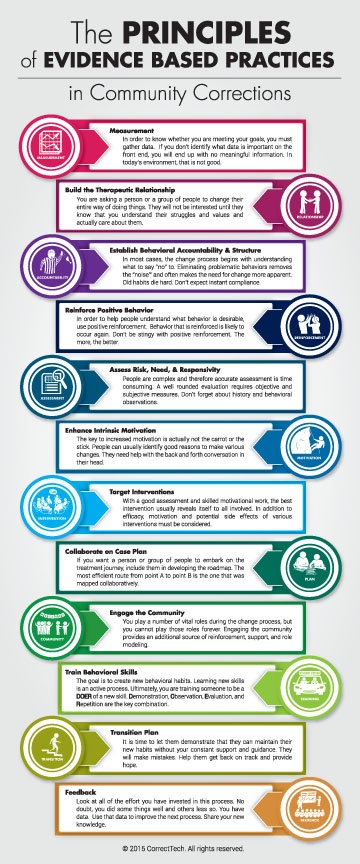- Home
- Software
- Support and Services
- Programs We Serve
- EBP
- Testimonials
- Blog
- About Us
- Resources
You are asking a person or a group of people to change their entire way of doing things. They will not be interested until they know that you understand their struggles and values and actually care about them.
The change process is a journey. It has its ups and downs and often feels scary and out of control. It is always easier to approach the unknown with a partner, particularly a partner who has been there before. Most offenders have a long history of failure and are well acquainted with betrayal; their first question is, “Can I trust this person?” Answering this question can, for some, be a time-consuming process. When you have a long history of hurt, it is wise to be hesitant to trust again.
“Is this person going to listen to me or just tell me what to do?”
“Do they really care about me or are they just going through the motions?”
“If I decide to take this leap and start this journey with them, will they be reliable and supportive partners along the way?”
While there is likely to be some testing of the relationship and commitment, no real progress starts until these questions have been answered. One of the reasons that Motivational Interviewing (MI) is so popular with this population is that, done well, MI quickly creates an environment and relationship that allows the client to answer these questions quickly and affirmatively.
While the relationship will always be a central focus in the change process, early on it is the primary focus. If you think about following the client on the journey rather than leading, you will know when the client feels comfortable and ready to begin the uphill climb together. When trust, respect and collaboration exist, enhancing intrinsic motivation becomes much easier. A great deal of support is required to maintain motivation.
Change is not an event - it is a process.
Behavioral change is hard. Show that you understand that and be patient from the start and throughout the case or treatment plan.
We've developed our software to take the workload off case managers to enable them to make meaningful relationships with their clients. Click on our software icons below to see how we've implemented the EBP principle relationship in our software.

CorrectTech offers integrated software and support services for residential, treatment, reentry, juvenile and probation programs. Our community corrections software was designed by community corrections professionals to guide organizations toward a powerful EBP implementation, relieve them of strenuous paperwork and manual processes, and enable them to focus on what matters - people! To request more information or schedule a demonstration of our software, click here.
CorrectTech, Inc.
info@correcttech.com
Copyright 2018 CorrectTech, Inc. All Rights Reserved.